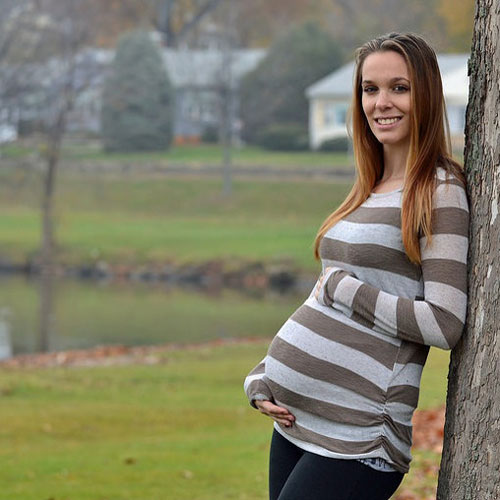How Your Ovulation Cycle Is Related To Pregnancy
Ovulation occurs once a month when your ovary releases an egg into your fallopian tube. This egg will live for up to 24 hours in your fallopian tube and will need to come in contact with sperm during this time-frame in order for you to become pregnant.
While 24 hours is a small window of time, there is good news. Your partner’s sperm can live for up to 7 days after intercourse. This means that his sperm could already be in your fallopian tube waiting for ovulation to occur and your egg to be released. Having intercourse even 5-6 days prior to ovulation increases your odds of getting pregnant.
How Do You Know When You Will Ovulate?
Some women have cycles that are right on schedule every month, but how do you know when you are ovulating? There are lots of methods of tracking and predicting ovulation:
Chart your Basal Body Temperature
Your Basal Body Temperature is a resting temperature that you read each morning before getting out of bed. If you track your BBT for a few months it will help you to detect the small raise in your temperature that occurs right after ovulation.
Use Ovulation Predictor Kits
An Ovulation Predictor Kit is similar to a pregnancy test, but instead helps you measure the increased levels of Luteinising hormone (LH) in your urine that occurs approximately 36 hours prior to ovulation.
Record Cervical Mucus
Your cervical mucus is a substance your body naturally produces to aid sperm in travelling throughout your vagina and ideally into your fallopian tubes. When you are ovulating your body will produce more cervical mucus and the mucus will become the consistency of egg whites. By recording the consistency of your cervical mucus it will help you determine when the best time to conceive is.
Use a Saliva Fertility Monitor
A saliva fertility monitor is designed to measure the oestrogen in your saliva. When oestrogen is present in your saliva you are getting close to ovulation. We recommend the Maybe Baby Saliva Fertility Monitor. Your may also want to read our post on how to use the Maybe Baby Saliva Fertility Tester.
Use A Fertility App on your Smartphone
There are a number of fertility apps on the market which can help you to predict ovulation and periods. A few of the best used apps include: Groove – this is a lovely app that you can download on Apple iPhone and Android devices. The app will help you to predict your upcoming periods, based on advanced algorithms. This can help you to predict your fertile times as you get to learn the patterns of your cycle. Another period and health tracker for most devices is Clue. This app helps you to keep tabs on all aspects if your fitness and health. It can also send you personalised reminders that update you on PMS, your period, fertility and ovulation.The final app that we recommend is My Cycles. This android only app will help you track the beginning of your cycle, your period, fertile window and will predict your day of ovulation.
You can use a combination of these tracking methods to predict ovulation or just rely on one procedure that works best for you.
Are There Any Ways To Increase The Chances of Pregnancy Without Tracking?
Yes, there are ways to increase your odds of getting pregnant without tracking. Since sperm can live for up to 7 days inside your body increase your frequency of intercourse to every 2-3 days. This will ensure that sperm is present, but cannot ensure conception.
Every woman’s body is different, but 80% fertile couples under the age of 40 will successfully conceive within their first year of trying and a 90% within two years of trying. A fertile couple in this age range has a 20-25 percent chance of getting pregnant each ovulation cycle.
Photo Credit: “DSC_9688 a” (CC BY 2.0) by bradfordst219
Zoom Baby is a leading supplier of Pregnancy Tests and Ovulation Test Kits





